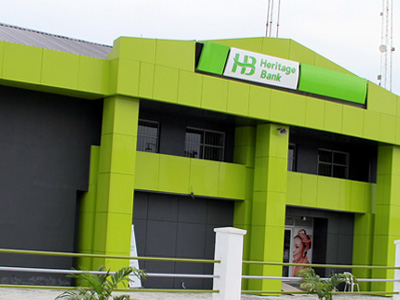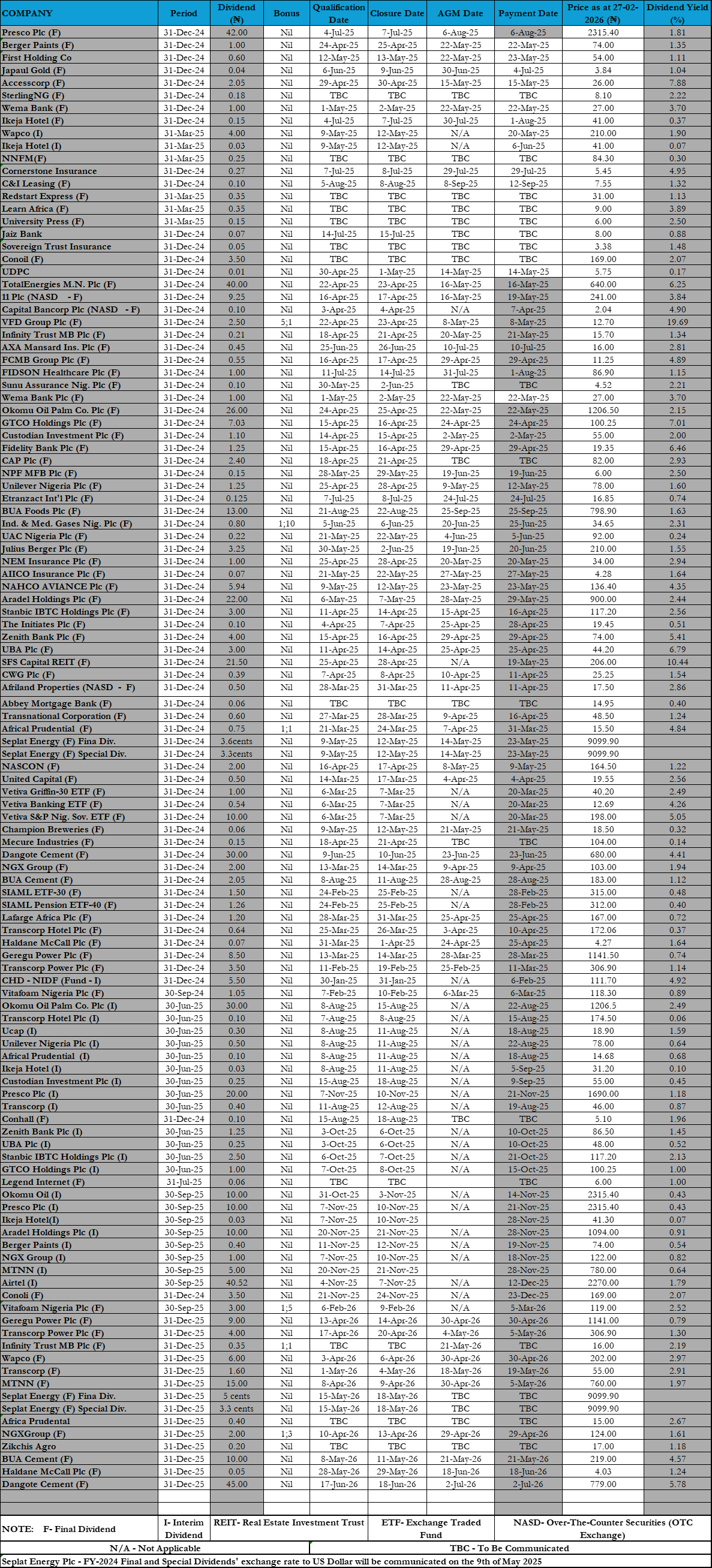
Offers N0.25 Dividend
Directors of Zenith Bank Plc, on Thursday presented the result for its audited half-year ended June 30, 2017, showing while gross earnings was robust, profit after tax were even more significant, rising by 112.35% over the period. This was helped by the impressive improvement in non-interest income on the back of equally strong revenue from foreign exchange trading at N46bn, up from previous loss of N496m, despite the rise in loan loss provision and operating expenses for the period under review.
The directors proposed a dividend of 25 kobo, same as previous half year, from earnings per share of N2.40, which was a significant increase over prior year’s N1.13 each. The EPS translates to a dividend yield of 1.0% and a payout ratio of 11.2%.
According to the result presented to the Nigerian Stock Exchange (NSE), gross earnings jumped by N165.628bn or 77.1% from N214.812bn in the first half of 2016 to N380.44bn, with interest and similar income of N262.257bn, up by N80.849bn or 44.56% from N181.408bn. Interest and similar expense however rose to N123.295bn or N68.91bn or 126.7%, following which net interest income could only rise by N11.939bn or 9.39% from N127.023bn to N138.962bn.
Details of the income its profile of the bank for the period showed that N348.13bn or 91.5% of the revenue was derived from Nigeria corporate, retail and pension custodian services business; while N24.72bn or 6.49% came from the bank’s African subsidiaries and the remaining N7.59bn from Europe. In the same way, interest expense of N115.698bn (92.69%) was derived from Nigeria.
Added to this was an impairment loss on financial assets of N42.398bn, up from N13.232bn, representing an increase of N28.166bn or 197.9%, as net interest income after impairment loss on financial assets dropped from N112.791bn to N96.564bn.
Also, N37.249bn or 87.85% of impairment loss was booked in Nigeria; just like the N112.93bn, representing 93.29% of the admin and operating expenses for the period under review
Fee and commission income improved to N37.753bn from N30.701bn, once more driven by account maintenance fee, which stood at N8.325bn from N8.922bn; fees on electronic products, rose from N2.008bn in the 2016 half year to N5.38bn. Asset based management fees stood at N3.764bn from N2.89bn; while commissions on agency and collection services jumped to N3.86bn from N1.62bn. Trading income for the period climbed to N65.318bn from a loss of N864m in the corresponding period of 2016, mitigating the effect of the impairment loss and operating expenses. Other operating income soared to N15.112bn from just N3.567bn, lifted by the N8.404bn “provision no longer required;” followed by N5.562bn foreign currency revaluation gain, which rose from N2.84bn. Depreciation of property and equipment rose to N5.53bn from N4.524bn.
Personnel expenses increased to N36.21bn from N34.593bn; while operating expenses soared to N80.068bn from N52.477bn, driven by the rise in AMCON (Asset Management Corporation of Nigeria) levy which rose from N18.752bn to N21.419bn; while deposit insurance premium to the Nigeria Deposit Insurance Corporation (NDIC) stood at N5.5bn, from N5.196bn. Fuel and maintenance cost increased to N9.919bn from N6.362bn; information technology gulped N6.281bn, from N3.178bn; security and cash handling cost rose to N3.664bn from N1.474bn; while advertisement cost increased to N5.871bn, up from N3.161bn. These left profit before tax at N92.183bn, as against the N53.905bn reported in the prior half-year.
There was a drop in income tax expense from N18.438bn to N16.866bn; while profit attributable to shareholders for the period jumped from N35.467bn to N75.317bn, out of which N69.286bn or 91.99% was derived within Nigeria.
Zenith Bank’s balance sheet grew to N4.927tr, up by N187.542bn or 3.95% from N4.739tr. The bank’s loan and advances book dropped to N2.187tr from N2.289tr; even as customer deposits dropped slightly to N2.974tr, compared to N2.983tr in prior half year. Shareholders’ fund for the period rose from N704.485bn to N719.333bn.
A breakdown of the total loans showed that the bulk went to players in the oil and gas sector- N686.209bn, out of which N11.067bn is not performing; manufacturing, N523.686bn, with N6.289bn toxic; and government, N335.857bn and N359m impaired. These were followed by N281.204bn loan to the general commerce sector, which had N27.146bn as non-performing; as well as N112.87bn and N2.86bn non-performing; among others.












